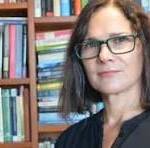Uditha Devapriya and Pasindu Nimsara, whose preferred title is “Kévum, KrÏda, and Kadé: Avurudu in Colombo” … from The Island, 19 April 2024
No Avurudu would be complete without an Avurudu Ulela. It has become part of our national social calendar, an event that must be organised, a tradition that must be kept. Practically every institution, from nurseries to universities to companies to Rotaract Societies, has a shot at holding one. The result is that somehow or the other, an Avurudu Ulela unfolds somewhere every other day until the end of April.
















